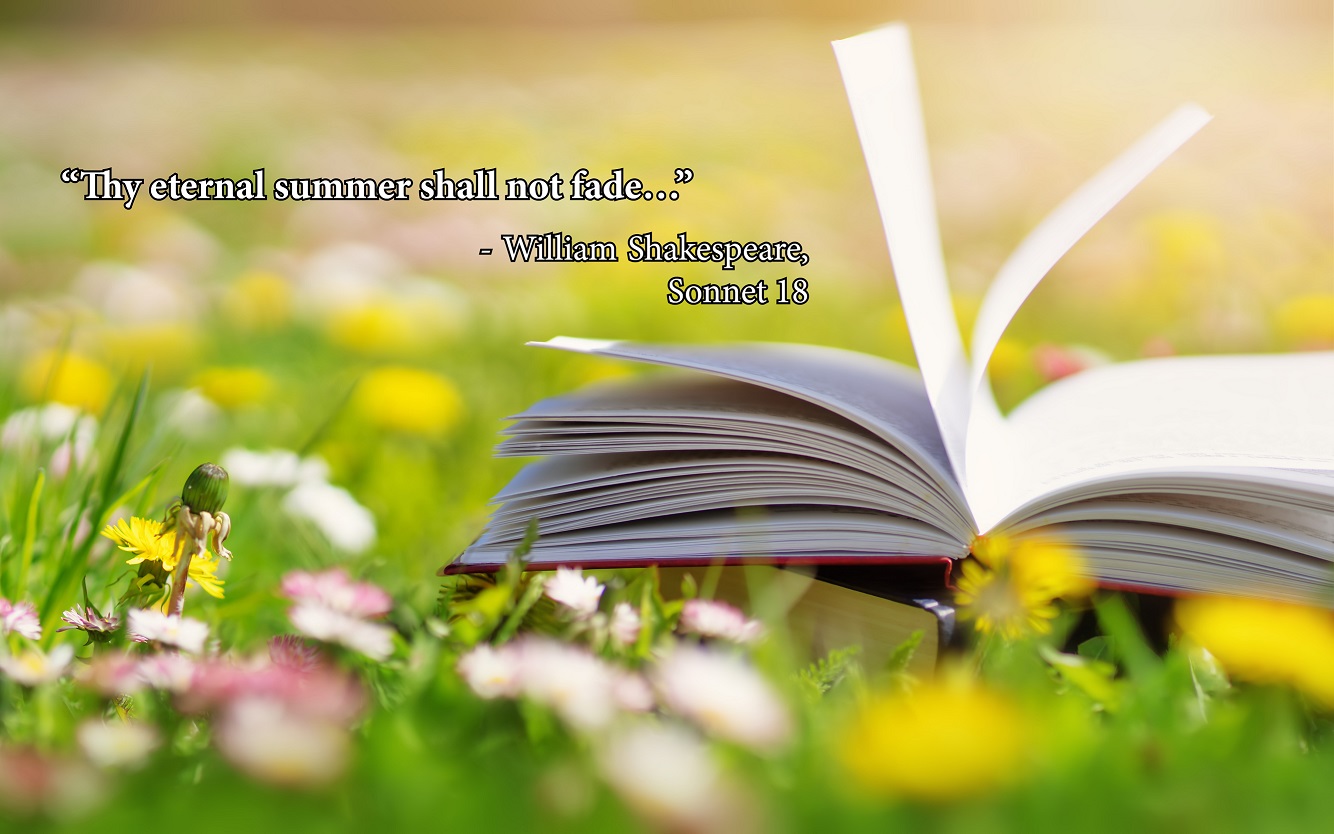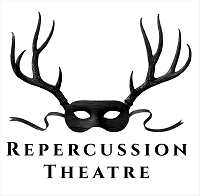

“How can my Muse want subject…”
(Sonnet 38)
| In this issue:

“This huge stage presenteth nought but shows whereon the stars in secret influence comment.”
(Sonnet 15)
| Announcing Repercussion’s Summer Performance Series
Repercussion Theatre is thrilled to announce Shakespeare-in-the-Park 2021: Summer of Sonnets! This season, we’ll be returning to Montreal parks with a variety of in-person and digital offerings. While the Summer of Sonnets will differ from the play productions Repercussion has traditionally undertaken, we’re very excited to engage audiences in a magical and meaningful take on another part of the Shakespeare canon.
Stay tuned for more details!

“… such fair assistance in my verse…”
(Sonnet 78)
| What’s in a Quatrain? A Beginner’s Primer to Sonnets
What, we hear you asking the void, even is a sonnet?
Why, you might be saying, should I care?
Worthy questions, dear reader, and so, we’ve a few resources for those interested in reading up on the sonnet form. In brief, a sonnet is a fourteen-line-long rhyming poem, with relatively strict (if delightfully variable) metrical and end-rhyme conventions.
(Sidebar: Per the title of this article, a quatrain is a grouping/stanza of four lines – with a so-termed English or Shakespearean sonnet being made up of one twelve-line (three-quatrain) stanza, and a final rhyming couplet. Simple, right?)
Originally entering into the English poetic imaginary some time in the first half of the sixteenth century, the sonnet has come to be associated with devotional/love poetry, thanks, in large part, to Shakespeare’s 154-poem-long sonnet sequence. The Bard’s sonnets, in their imagery, conceits, and, dare we say it, poetry, have had a lasting (insidious?) impact on how we frame poetic affirmation of esteem and longing… trickling down across the ages to contemporary iterations that include how a fair few pop songs and greeting cards are structured.
If you’d like to read up on the sonnet form, Shakespeare’s sonnet writing, and Shakespeare’s sonnets themselves, here are a few avenues of discovery:
- Those looking for a particular terminological understanding of sonnets might make use of the Poetry Foundation’s glossary entry. (Warning: This literary glossary can quickly become a deep rabbit hole.)
- The Folger Shakespeare Library presents the Sonnets excellently, with synopses of each poem, as well as critical and contextual framing.
- The British Library has pages with an approach to reading Shakespeare’s Sonnets with a through-narrative, as well as a longer read about the construction and legacy of the Bard’s work.

“Well I know that music hath a far more pleasing sound.”
(Sonnet 130)
| Appreciating an Epic Crossover, or, A Meeting of Chris’s Fandoms
Exciting projects and seriousness aside, May is also an opportunity for some frivolous excitement, as it happens to be the month of a competitive final dear to my heart – that of the Eurovision Song Contest. Why and when I started following the ESC remain obscure in my recollection, but I think it’s safe to say that the interest in our household borders on the maniacal. The sheer spectacle of the contest, with choreographies, wild creative decisions, and glorious key changes, makes for a mightily entertaining distraction. Imagine my surprise, then, when an internet search made on a whim produced positive results… for a query about “Eurovision and Shakespeare”. The European Broadcasting Union (EBU), who bring us the ESC (bear with me here), were instrumental in commissioning a series of Eurovision-esque musical adaptations of Shakespeare’s lines – albeit with substantially fewer pyrotechnics. Curiosity piqued? A wealth of material can be found hosted on the BBC’s Shakespeare Lives website.
As Repercussion adapts to the profoundly altered arts landscape during this time of crisis, we humbly ask that you consider becoming a monthly donor, or making a charitable contribution.
Your valued patronage enables us to keep developing new works, kickstart theatre careers, and nurture strong community connections grounded by the arts.
Thank you.


